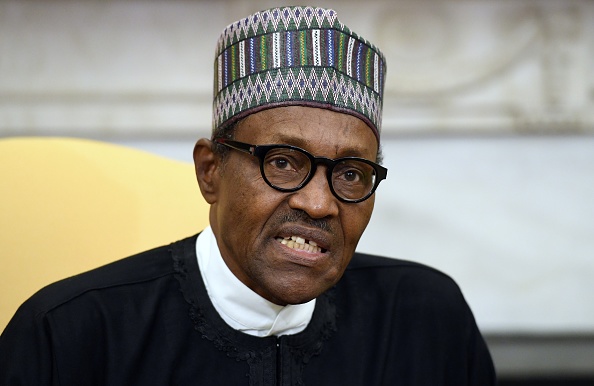Abuja – Nigerian President Muhammadu Buhari on Friday signed off on his government’s 2022 budget of a record 17 trillion naira ($41 billion, 37 billion euros), as Africa’s largest economy struggles with soaring inflation.
Last year’s slump in oil prices triggered by the coronavirus pandemic was hard on the continent’s top producer, where activity shrank by 1.8% according to the World Bank.
Although Nigeria has returned to growth this year, criminal attacks and kidnappings in the northwestern and central states have held it back, along with strong inflation in food prices.
Government spending plans for next year are 26% higher than 2021.
ALSO READ | Nigeria tax spat reignites federalism debate
But the real-terms increase will be far smaller when compared with forecasts for 17% inflation.
Even as he signed the budget, Buhari attacked “worrisome changes” by lawmakers, who had added an extra 550 billion naira of outlays for the coming year.
“I will revert to the National Assembly with a request for amendment and/or virement (money transfer)… to ensure that critical ongoing projects… and those nearing completion do not suffer a setback due to reducing funding,” the president said.
The spending plan assumes that the economy will expand 4.2% next year, after 2.7% in 2021, and calls for a deficit of more than six trillion naira, to be financed with new borrowing.
ALSO READ | Nearly 17m Nigerians face food insecurity, says report
“Effective implementation is very critical for delivering our legacy projects, promoting social inclusion and strengthening the resilience of the economy,” said Buhari, who does not plan to stand for re-election in a 2023 presidential poll.
Around 87 million people in Nigeria live beneath the $1.90 per day extreme poverty line, according to estimates from the Austria-based World Data Lab.
That represents 41% of the 210 million in Africa’s most populous country.
Nigeria also suffers from growing security woes, including criminal gangs known as bandits in the northwest and centre, a jihadist insurrection in the northeast and a separatist movement in the southeast.
Follow African Insider on Facebook, Twitter and Instagram
Source: AFP
Picture: Getty Images
For more African news, visit Africaninsider.com


